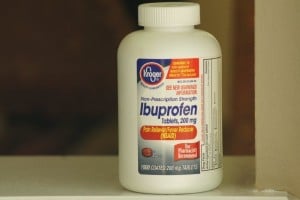NSAIDs may be to blame
 At Texas Fertility Center San Antonio, we counsel women on proactive measures to take when they are having problems getting pregnant. If you take NSAIDs (nonsteroidal anti-inflammatory drugs) and are having fertility issues, there may be a link. A new study highlights the harmful effects these medications may have on fertility.
At Texas Fertility Center San Antonio, we counsel women on proactive measures to take when they are having problems getting pregnant. If you take NSAIDs (nonsteroidal anti-inflammatory drugs) and are having fertility issues, there may be a link. A new study highlights the harmful effects these medications may have on fertility.
NSAIDs are drugs used to treat pain, inflammation and fever and are available by prescription, as well as over the counter (OTC). Brands of commonly used OTC NSAIDs include Motrin® and Advil® (both ibuprofen) and Aleve® (naproxen).
A drop in progesterone may cause problems getting pregnant
The results of this small study, which included 39 women of childbearing age with mild musculoskeletal pain (back pain), were presented at the European League Against Rheumatism Annual Congress in Rome on June 11, 2015. Of the women receiving the following NSAIDs – diclofenac, naproxen and etoricoxib – only 6.3 percent, 25 percent and 27.3 percent, respectively, ovulated compared with 100 percent of the control group.
“After just 10 days of treatment we saw a significant decrease in progesterone, a hormone essential for ovulation, across all treatment groups, as well as functional cysts in one-third of patients,” said study investigator Professor Sami Salman, Department of Rheumatology, University of Baghdad, Iraq.
Effects of NSAIDs are usually reversible
The good news, according to Dr. Erika Munch of Texas Fertility Center San Antonio, is that the effects of NSAIDs are usually reversible.
“Once women stop taking these medications, ovulation usually resumes,” says Dr. Munch, board certified reproductive endocrinologist. “The lesson here is that women need to know that NSAIDs may have a negative impact on their fertility.”
If you take NSAIDs on a regular basis and are having problems getting pregnant, don’t wait. Contact us at Texas Fertility Center San Antonio to set up an appointment with Dr. Munch today.



